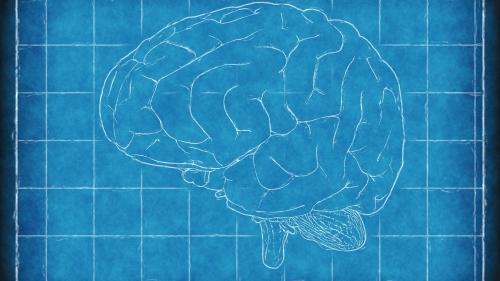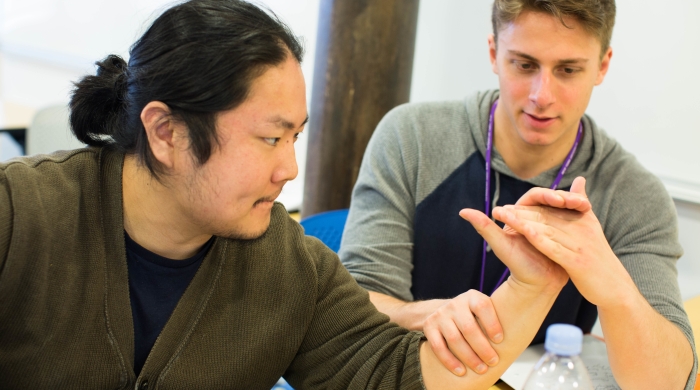
Research SnapshOT
MS in OT students Rebecca Goldstein, Lucie Jerome, Eric Jiang, and Molly Marks worked with their faculty mentor Assistant Professor of Occupational Therapy Grace Kim to investigate the effects of the COVID-19 pandemic on healthcare utilization for individuals with stroke and Traumatic Brain Injury (TBI).
Read on to learn more about their research, entitled "Effects of the COVID-19 Pandemic on Healthcare Utilization for Individuals with TBI and Stroke," which they recently presented at the Steinhardt Research and Scholarship Showcase.
Background
COVID-19 lockdown orders have had a pervasive impact on the daily lives of individuals worldwide, resulting in increased social isolation, altered work and school patterns, and limited mobility. Subsequently, healthcare utilization has decreased among various populations worldwide including pediatrics, people with Parkinson's, and people with substance abuse disorders. In Italy, COVID-19 patients were prioritized; patients with mild stroke symptoms were not seeking medical attention and stroke units were closed. Half of all individuals with TBI in a Tennessee survey reported that their disability made coping with the pandemic more challenging, identifying social isolation and mental health as key barriers.
Aim
The study aimed to investigate the effects of the COVID-19 pandemic on healthcare utilization for individuals with stroke and TBI.
Methods
A cross-sectional survey was implemented through an online Redcap survey in the fall of 2020. Healthy adults, individuals with TBI, and individuals with stroke were recruited. Data including demographics, health information, medical history, COVID-19 exposure, practicing of social distancing, and how COVID-19 affected access to and utilization of physical and mental healthcare services were collected.
Results
A total of 266 participants were included in the study. 88 had stroke, 52 had TBI, and 126 were healthy controls. The majority were white, college-educated, female-identifying individuals living in the United States. 30–73% of individuals experienced missed/canceled healthcare appointments, 38–80% experienced a delay in making healthcare appointments, and less than 45% attended in-person healthcare appointments. On average, participants reported being somewhat satisfied with telehealth for TBI/stroke, other major medical conditions, general, and mental healthcare.
Discussion
The changes in healthcare utilization during the COVID-19 pandemic can be used to help clinicians and researchers identify areas of greater need for access and barriers to healthcare services during periods of pandemic among TBI or stroke populations. Healthcare utilization was largely affected by the COVID-19 pandemic across all groups, leading to missed/canceled appointments, delays in making appointments, and decreased in-person appointments. Individuals with TBI utilized telehealth appointments the most in lieu of in-person visits.

We were affected at the peak of the COVID-19 pandemic as healthy individuals since healthcare systems were overburdened. We wanted to know how the pandemic affected those with chronic conditions, specifically stroke and TBI, who would need to access and utilize healthcare.

We hope the outcomes of this study will inspire further research aimed at improving the telehealth experience for individuals with TBI and stroke during this pandemic and potential future healthcare crises. Furthermore, we aspire to inform clinicians about how to improve access to healthcare services for individuals with TBI and stroke.

